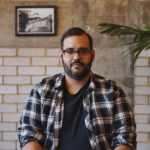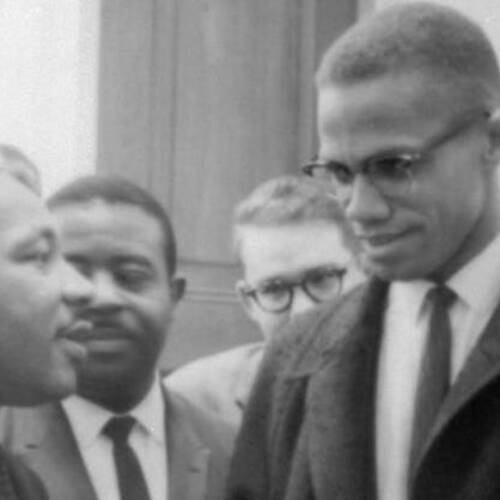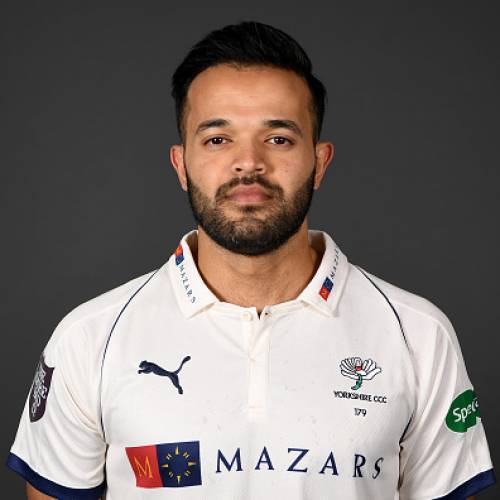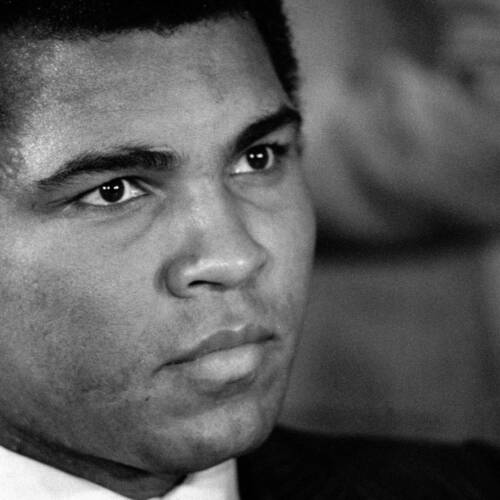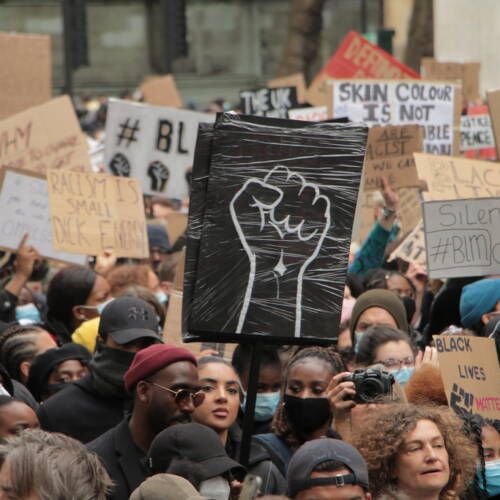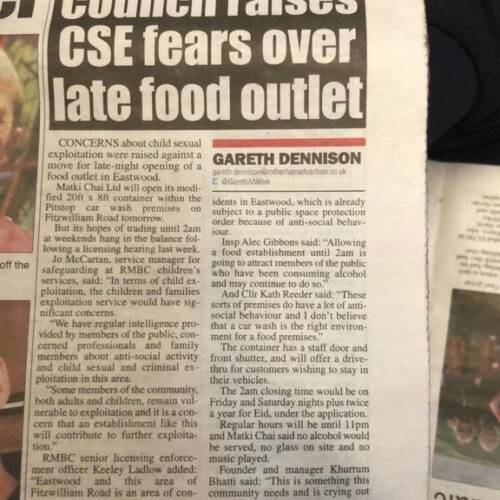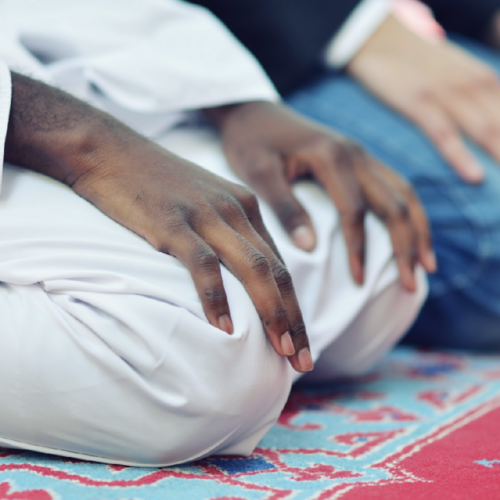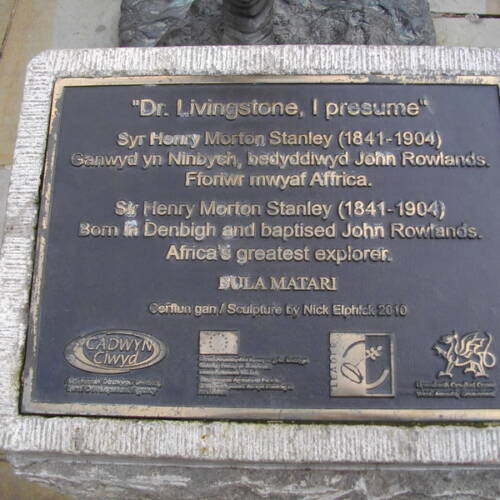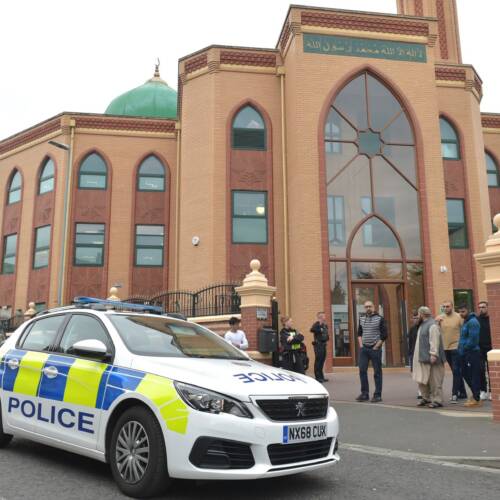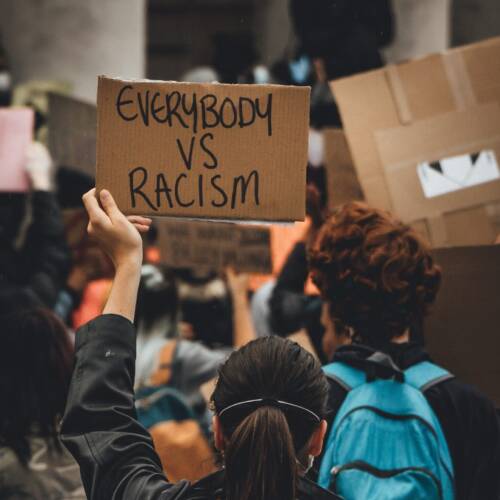
US Protests Start Talks of Anti-Black Racism Among Muslims Themselves
09 Jun 2020The US protests against police brutality that started in the aftermath of the killing of George Floyd in Minnesota have now entered their third week. And in that time, there has been much debate on the role of racism and policing in America. Understandably, this has been framed as a conflict between White Americans and African Americans.
Having often been the targets of police surveillance themselves, Muslims in the US and around the world have sided with the protesters on most occasions. Over the past two weeks, we have seen numerous expressions of solidarity Muslims and the mostly-Christian African American communities.
The developments in the US, however, have also spurred discussions among Muslims themselves after numerous leading Black Muslims have come out to say that they have experienced racism from Muslims who have gone on to criticise the racist behaviour of US police.
Among those talking about the matter was Sheikh Nuru Mohammed, a Birmingham-based scholar originally from Ghana. Speaking during a discussion segment with the London-based Ahlulbayt TV, Sheikh Nuru said that has faced racial discrimination from wider society as well as Muslims from his own community purely due to the colour of his skin.
Similarly, US-based Black Muslim activist Nailah Dean, said that she often faced scrutiny for her background and faced backlash when she engaged Arab Muslim man. Dean feels that the pre-existing anxiety US Muslims feel about getting involved in politics has been bolstered during the current protest movement, with many Muslims unsure where to stand.
“There are racist people among our own, big time!”
Among those to comment on the issue was Sheikh Nuru Mohammed, Imam of KSIMC in Birmingham who spoke at a discussion programme aired in Ahlulbayt TV. Originally from Ghana, Sheikh Nuru said that he faced racism over the course of his life, both from ordinary Muslims but also among ulema scholars. He said that this experience wasn’t limited to Western countries and that he has seen such behaviour over the course of his travels through Pakistan, Iran and Iraq.
He said that when it was first announced that he would become the resident Imam KSIMC, some members of the congregation balked at the idea that a black person leading them. He added that even in the highest levels, among the ulemas, he has experienced racism. He further added that in the UK, he has seen parents hesitate letting their children marry to a black person, fearing it would be inappropriate.
One of his students corroborated his comments, noting that when Sheikh Nuru spoke about matters of racial injustice, people who used to look up to him started to criticise him and claimed that he was speaking wrongly.
Similarly, the host of the show, Huseein Sajjad Hussein, said that if someone as respected and as educated as Sheikh Nuru speaks on the matter, he should not be shut down, as has been the case with some of the responses he received following the clip going online. He warned that there are people around the world and is Muslim communities that suffer from racism and praised Sheikh Nuru for using his platform to help improve the behaviour of Muslims. He added that since the show aired, he received many messages about peoples’ experiences of racism and discrimination and called for these issues to be debated.
While Sheikh Nuru was speaking of his experiences as a Shia and in the Shia community, the experiences of Black Muslims seem to be uniform across the board in the UK. A recent survey by the Black Muslim Forum found that the majority of Black Muslims experienced discrimination and alienation from the overall British Muslim community, with many facing direct discrimination including racialized mocking and even segregation.
“We were never prepared to feel ‘othered’ within our own religious community”
The situation for Black Muslims is similar in the US. Nailah Dean, the child of an Afro-Latina mother who converted and a Black Muslim father, she said that she had to deal with racism from whites but it was being “othered” by her own religious community that really shocked her. She said that at times, she faced scrutiny from mosques who questioned her Muslimness, especially when she said that she wasn’t Sudanese or Somali. Her worst experience, however, was when she was rejected by the parents of the man she wanted to marry, just for being Muslim.
She adds that in general, terms like abeed (slave in Arabic) and kallu (slang for Black person in Urdu) are commonly used by non-Black Muslims when referencing Black people. In speaking to her friends, she said that her experiences have not been unique and that many others like her have faced similar discrimination, resorting to products like skin whitening creams as a result.
Both Sheikh Nuru and Dean feel that it is time the Muslim community faces its own racism against blacks. Sheikh Nuru was vocal that any criticisms of the US will be hollow without such self-criticism and improvement. Dean, meanwhile, said that he has been heartened by the reach Black Muslim scholars had since sermons went online due to the coronavirus outbreak, allowing them to reach an audience that they ordinarily wouldn’t be able to. They both agreed that Islamic leaders need to take a stand on the matter, so they can guide ordinary Muslims.





